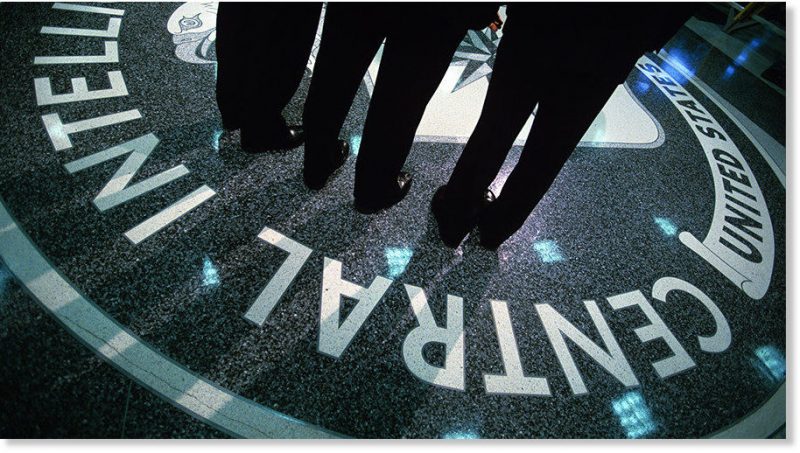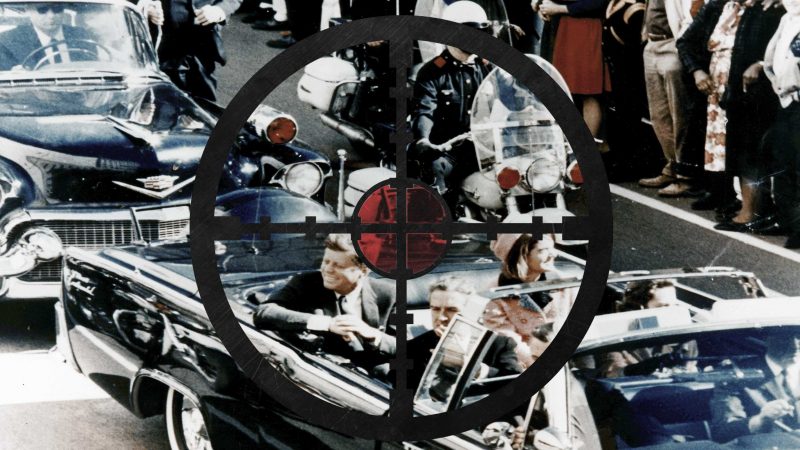
Given that we have all been born and raised under a regime that has the CIA, hardly anyone questions the power of the CIA to assassinate people. The CIA’s power of assassination has become a deeply established part of American life.
Yet, the Constitution, which called the federal government into existence and established its powers, does not authorize the federal government to assassinate people.
If the proponents of the Constitution had told the American people that the Constitution was bringing into existence a government that wielded the power to assassinate people, there is no way that Americans would have approved the deal, in which case they would have continued operating under the Articles of Confederation.
Under the Articles, the powers of the federal government were so weak, it didn’t even have the power to tax, much less the power to assassinate people. That’s because our American ancestors wanted it that way. The last thing they wanted was a federal government with vast powers.
In fact, the purpose of the Constitutional Convention was simply to amend the Articles of Confederation.
During the 13 years of operating under the Articles, problems had arisen, such as trade wars between the states. The convention was intended to fix those problems with amendments to the Articles.
Instead, the delegates came out with an entirely different proposal, one that would call into existence a federal government that had more powers, including the power to tax.
Americans were leery. The last thing they wanted was a powerful central government. They had had enough of that type of government as British citizens under the British Empire.
They believed that the biggest threat to people’s freedom and well-being lay with their own government. They believed that if they approved a federal government, it would become tyrannical and oppressive, like other governments had done throughout history.
They were especially concerned with the power of the government to murder people, including citizens. They knew that state-sponsored murder was the ultimate power in any tyrannical regime.
When a government can kill anyone it wants with impunity, all other rights are effectively nullified.
And our ancestors were sufficiently well-versed in history to know that tyrannical regimes were notorious for killing their own citizens, especially those people who challenge, criticize, or object to the tyranny.
The proponents of the Constitution told Americans that they had nothing to be concerned about. The Constitution wasn’t calling into existence a government with general powers to do anything it wanted.
Instead, by the terms of the document that would be calling the federal government into existence, its powers would be limited to the few powers that were enumerated within the document.

Thus, if a power wasn’t enumerated, it didn’t exist and, therefore, couldn’t be exercised. Since the Constitution wasn’t giving the federal government the power to murder people, it couldn’t exercise that power.
On that basis, our American ancestors approved the deal, but only on the condition that the Constitution would be immediately amended after approval with a Bill of Rights.
To make sure that federal officials understood that they didn’t have the power to murder people, the Fifth Amendment was enacted.
It prohibited the federal government from killing people without first according them due process of law. It’s worth noting that the protections of the Fifth Amendment are not limited to American citizens.
The Amendment prohibits the federal government from murdering anyone, including people who are not U.S. citizens.
What is due process of law? It’s a phrase that stretches all the way back to Magna Carta in 1215, when the barons of England forced their king to acknowledge that his powers over them were limited.
Magna Carta prohibited the king from killing British citizens in violation of the “law of the land,” a phase that evolved over the centuries into “due process of law.”
Essentially, due process means notice and hearing. It says to the government: “You cannot kill anyone unless you first give him formal notice of the particular criminal offense that you are claiming warrants killing him.”
Then, after notice, there has to be fair trial in which the accused has the right to be heard. The Sixth Amendment ensured that people would have the right of trial by jury because our ancestors didn’t trust judges or tribunals.
And so it was that the American people lived in a society for more than 150 years in which the federal government lacked the power to assassinate people, which is really just a fancy word for murder.
A governmental assassination is the state-sponsored killing of a person without notice and trial — that is, without due process of law.
The situation changed after World War II, when the federal government, in a watershed event, was converted from a limited-government republic into what is known as a “national-security state,” a type of governmental system that is inherent to totalitarian regimes.

U.S. officials maintained that the conversion was necessary in order to confront the Soviet Union, a communist state, which itself was a national-security state.
The idea was that in order to defeat the Soviet Union in the Cold War, it would be necessary for the United States to adopt, temporarily, its same type of national-security state system.
In 1947, the CIA was called into existence as part of this new national-security state. President Truman, the president who was responsible for the federal government’s conversion to a national-security state, intended for the CIA to be strictly an intelligence-gathering agency.
But someone slipped a bit of nebulous language into the law that called the CIA into existence, which the CIA seized upon to justify the adoption of omnipotent powers, including the power to assassinate people with impunity, so long as the assassination was to protect “national security.”
Needless to say, the CIA had the omnipotent power to make that determination.
As monumental as the conversion to a national-security state was, it was not done through a constitutional amendment. The Constitution continued to be the supreme law that governed the operations of the federal government, including the CIA.
Thus, since the Constitution did not give the federal government the power to assassinate people and since the Fifth Amendment expressly prohibited the federal government from assassinating people, the U.S. Supreme Court and the rest of the federal judiciary had the responsibility to declare the CIA’s power to assassinate people unconstitutional.
Unfortunately, however, in a national-security state power is everything and especially omnipotent power. Recognizing that as a practical matter, there would be no way that the federal judiciary could keep the CIA from assassinating people in the name of protecting “national security,” the federal courts went silent or even supportive.
In 1989 the Cold War ended. Yet, we still have a national-security state and we still have a CIA with the power to assassinate people, including Americans. Why is that?
By Jacob G. HORNBERGER
First published by SCF
The 21st Century
